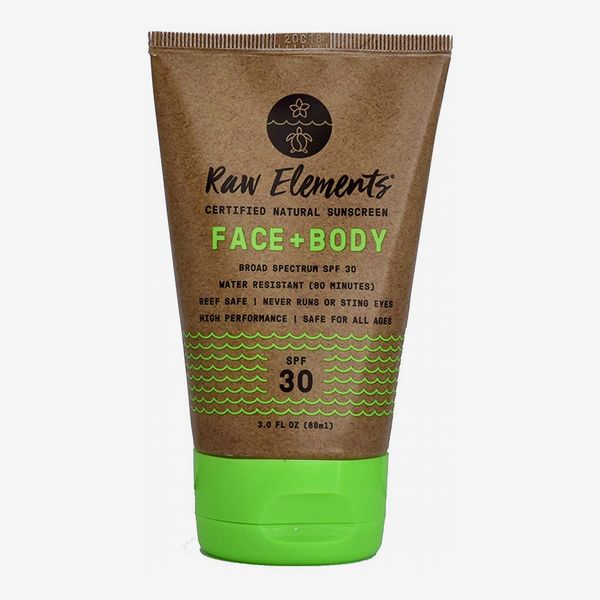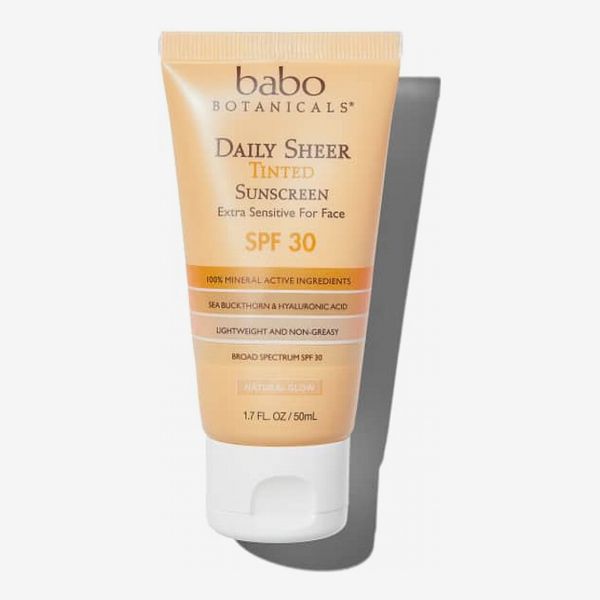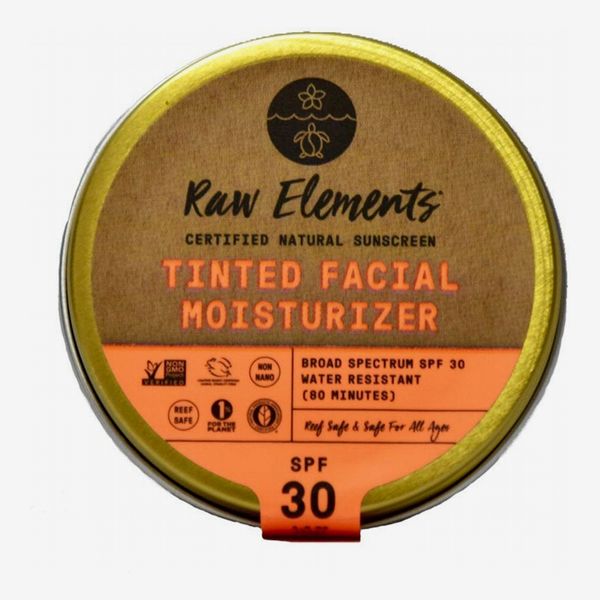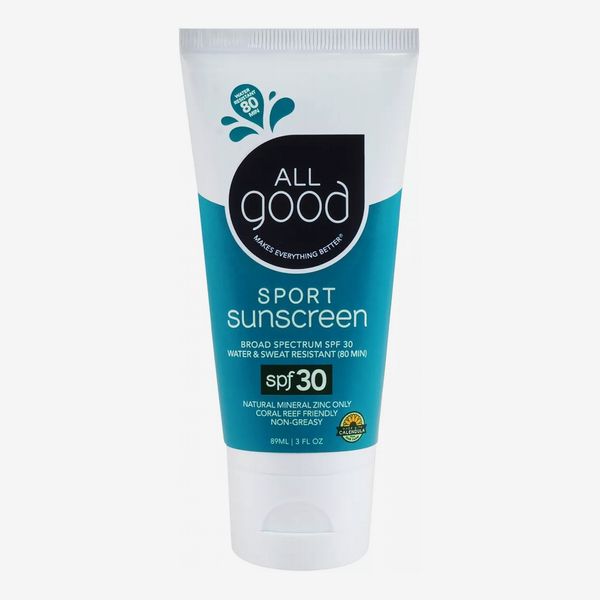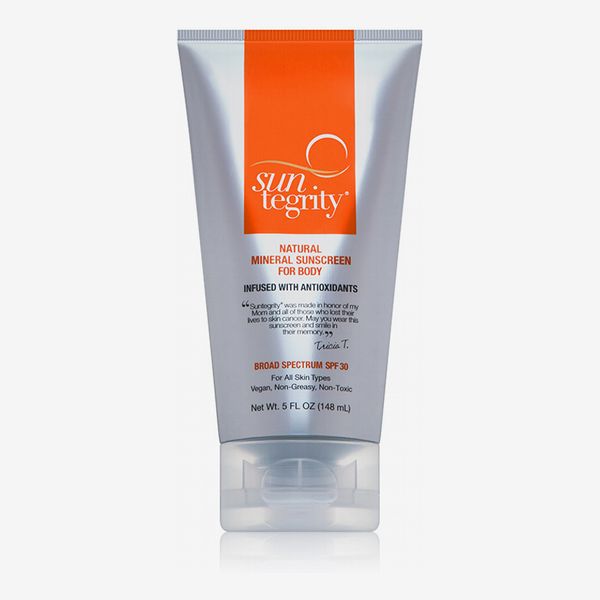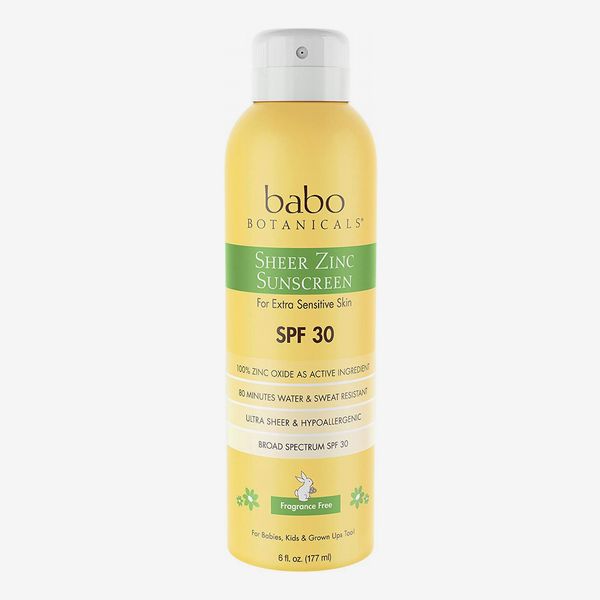
You already have a lot to consider when buying a sunscreen: Will it break me out? Is it safe for my kids? Can I just get my sun protection from my moisturizer? So while we feel a bit bad about giving you another thing to worry about, we can’t overlook the mounting evidence that the chemicals found in many sunscreens are destroying our oceans’ coral reef ecosystems — and entering our bloodstreams. (That said, we should also note that the FDA still allows these chemicals for use in sunscreen, and dermatologists continue to recommend chemical sunscreens for their other benefits.)
“Up to 6,000 tons of sunscreen are estimated to wash into coral reefs around the globe each year,” says Ashlee Piper, sustainability expert and author of Give a Sh*t: Do Good. Live Better. Save the Planet. “En masse, this can create an oil-slick-type situation that suffocates, bleaches, and kills reefs, which are crucial to the health of our planet and oceans.” Furthermore, Craig A. Downs, an ecotoxicologist and executive director of the Haereticus Environmental Laboratory, says that the same chemicals found in some sunscreens are also endocrine disruptors that, over time, can cause health issues in people, too. Which is why he, Piper, and the other experts we spoke with suggest using a sunscreen that’s as environmentally safe as possible (in addition to relying on umbrellas, hats, and clothing to guard against sun damage).
But unlike claims about SPF strength and water-resistance that are regulated by the FDA, Downs explains that “biodegradable” and “reef-safe” are mostly marketing lingo. There are no standards that a sunscreen has to meet to call itself reef-safe, so it’s important to look at the ingredient list. The best reef-safe sunscreens are made with natural, mineral sun blockers like zinc oxide and titanium dioxide. (When it comes to ingredients to avoid, Downs’s lab created a list that names substances in sunscreen, including parabens and chemicals like oxybenzone and octinoxate, that are dangerous to the environment.) To make your safe-sunscreen search as easy as possible, we consulted with Piper, Downs, and two more experts, who recommended the following options.
Best overall reef-safe sunscreen
Both Piper and Tara Foley, founder and CEO of the natural beauty store Follain, are fans of this mineral sunscreen that’s also cruelty-free, water-resistant, and can be used on the face and body. It uses non-nanosized zinc oxide, which Downs and Joseph DiNardo, a retired research and development scientist in the cosmetic and pharmaceutical industries, agree is one of the safest ingredients. Many sunscreen manufacturers use nanosized zinc particles because they blend into the skin quickly without leaving a white cast, but because they’re so tiny, Downs explains that the particles can also “enter into the bloodstream … especially with aquatic organisms.” Slightly larger non-nano particles, like the ones used in this formula, don’t pose the same risk.
Raw Elements, along with all of the sunscreen brands on this list, is a member of the Safe Sunscreen Council, a group of companies dedicated to raising awareness about the environmental dangers of sunscreen and developing safer products. DiNardo says he “would basically go with anybody in this group” when it comes to recommending sunscreens that are “environmentally safer [and] safer and more friendly to humans.”
Best reef-safe tinted sunscreen
A common complaint about mineral sunscreens is that, because they lack the chemicals that ease blending and absorption, they leave skin with a thick white cast. Fortunately, as the demand for safe sunscreen grows, brands are developing new, more cosmetically elegant formulas. Foley likes that this sunscreen (with non-nanosized zinc oxide and titanium dioxide) is tinted, which she says “provides a slight glow and ensures there’s no white cast from the zinc sunscreen.” It also contains hyaluronic acid for hydration and a blend of natural antioxidants that can further reduce sun damage.
Best reef-safe SPF moisturizer
Another tinted option, Foley says this “provides serious protection from the sun” and is one of her store’s most popular face sunscreens. Raw Elements’ SPF moisturizer also features antioxidants as well as skin-soothing vitamin E. Piper likes that it’s packaged in a recyclable (or reusable) plastic-free tin.
Best reef-safe vegan sunscreen
If you want a vegan sunscreen, this water-resistant one (that’s also cruelty-free) is Piper’s favorite for when she’s swimming outdoors. The non-nanosized zinc sunscreen can resist water and sweat for up to 80 minutes.
Best reef-safe body sunscreen
Foley’s pick for the body, Suntegrity’s non-nanosized, cruelty-free, and vegan sunscreen goes on without feeling greasy and contains antioxidants like green tea to block free-radical damage from UV rays, she says.
Best spray-on reef-safe sunscreen
If you like the convenience of a spray-on sunscreen, this one from Babo Botanicals is another one of Foley’s top sellers. It’s got non-nanosized zinc oxide for protection, and comes in a continuous spray bottle so you can easily apply it to your whole body.
The Strategist is designed to surface the most useful, expert recommendations for things to buy across the vast e-commerce landscape. Some of our latest conquests include the best acne treatments, rolling luggage, pillows for side sleepers, natural anxiety remedies, and bath towels. We update links when possible, but note that deals can expire and all prices are subject to change.
